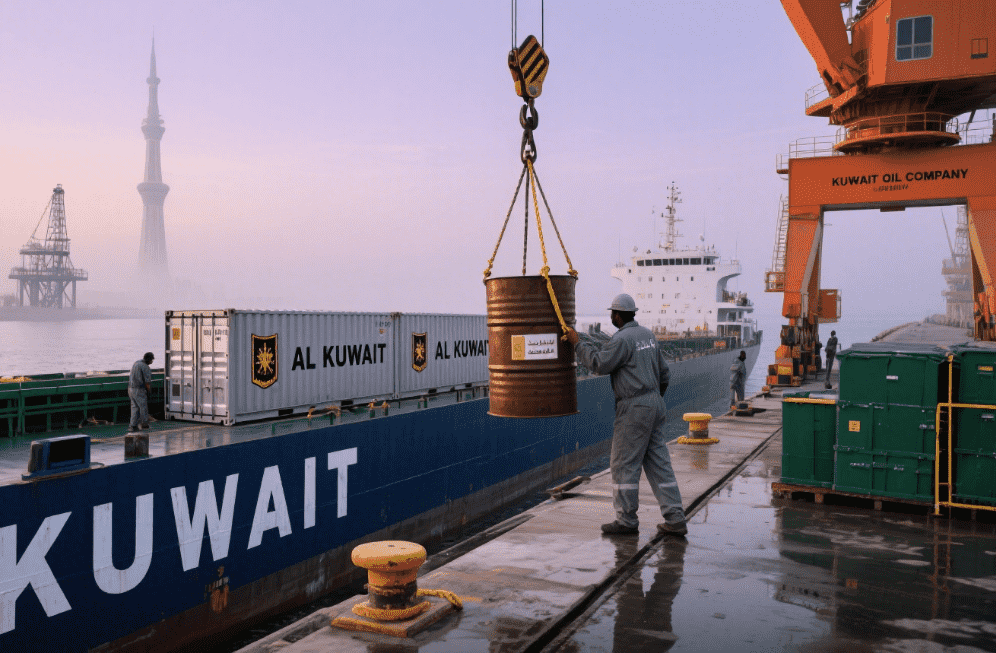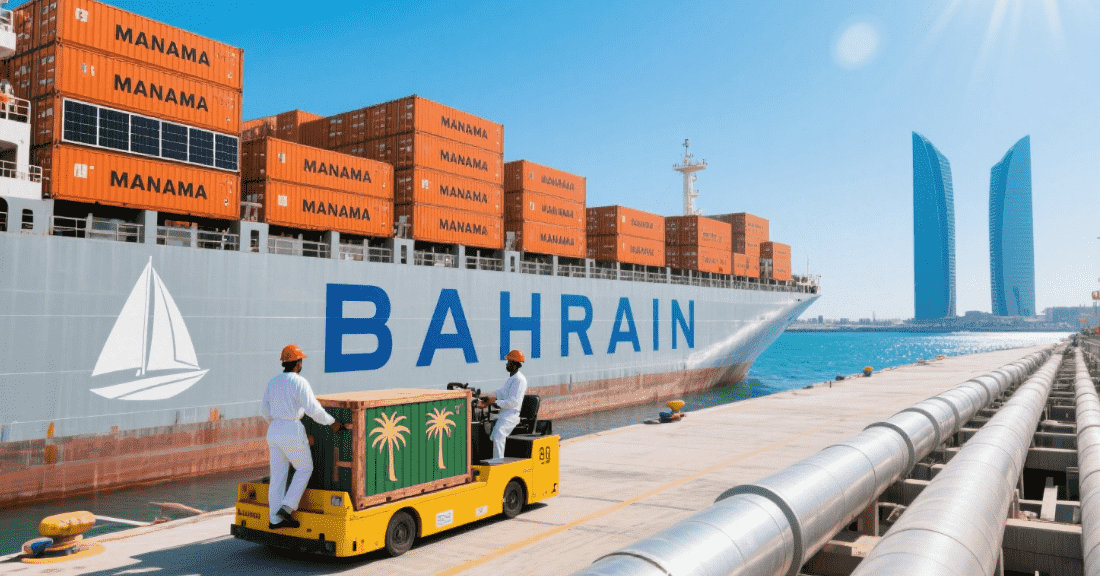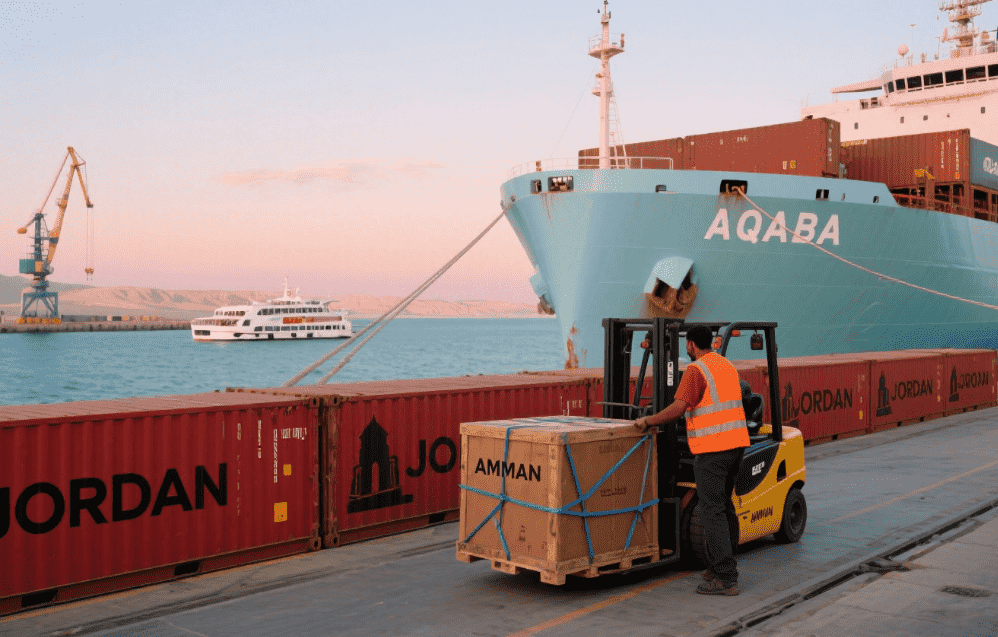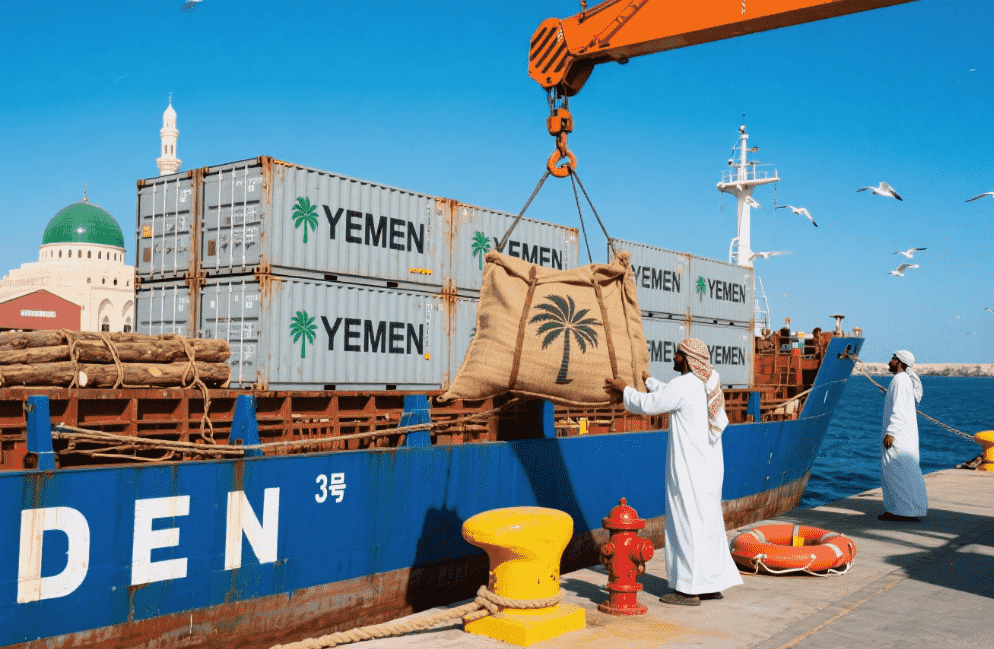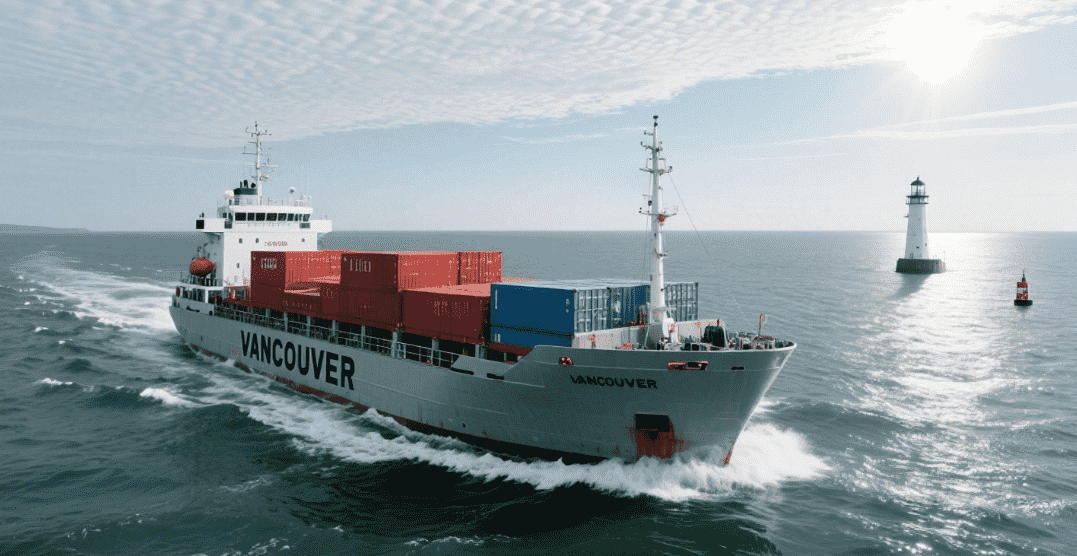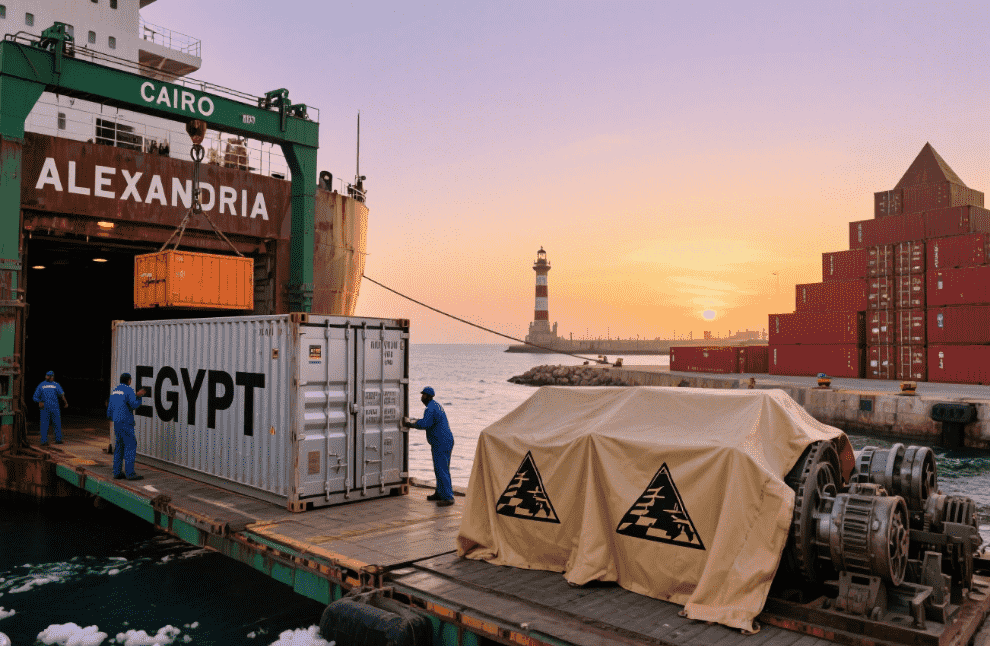
In today's interconnected global marketplace, businesses require optimized logistics solutions to successfully operate across transcontinental distances. For importers establishing China-Egypt trade routes, mastering freight options, accurately projecting shipping expenses, and collaborating with professional logistics partners have become essential for maintaining competitive operations. This comprehensive analysis examines the primary cost factors affecting China-Egypt shipments, evaluates customized transportation strategies, and demonstrates how Winsail Logistics enables companies to enhance their international supply chain performance.
1. The Dynamics of Shipping Costs from China to Egypt
Shipping costs from China to Egypt are influenced by a blend of macroeconomic trends, regulatory frameworks, and operational variables. To begin with, freight service providers evaluate routes based on distance, port efficiency, and transit time. The primary maritime corridor spans the Indian Ocean, Red Sea, and Suez Canal, with major Chinese ports like Shanghai and Shenzhen connecting to Egyptian hubs such as Port Said and Alexandria. Air freight, while faster, is typically reserved for high-value or time-sensitive cargo due to its higher cost per kilogram.
A pivotal factor shaping costs is the logistics solutions employed. Full Container Load (FCL) shipping offers economies of scale for bulk shipments, reducing per-unit expenses. Conversely, Less than Container Load (LCL) suits smaller consignments but incurs higher per-cubic-meter charges due to consolidation fees. Seasonal demand fluctuations—such as pre-Ramadan surges in consumer goods imports—can also drive up rates, necessitating proactive planning with a trusted cargo agent.
2. Key Components of Freight Service Costs
Breaking down shipping costs reveals multiple layers:
- Base Freight Charges: Determined by container size (20ft/40ft), weight, and volume.
- Terminal Handling Fees (THC): Levied by ports for loading/unloading cargo.
- Customs Clearance: Duties, taxes, and documentation fees imposed by Egyptian authorities.
- Insurance: Critical for safeguarding goods against damage or loss during transit.
- Ancillary Services: Warehousing, inland transportation, and last-mile delivery.
A proficient cargo agent streamlines these processes by negotiating competitive rates with carriers, ensuring compliance with Egyptian customs regulations (e.g., COMESA trade agreements), and minimizing delays. For instance, Egypt’s implementation of the Advanced Cargo Information (ACI) system requires shippers to submit detailed cargo data 48 hours pre-arrival—a mandate a seasoned logistics solutions provider can navigate seamlessly.
3. Choosing the Right Logistics Solutions: FCL vs. LCL vs. Air Freight
Selecting the optimal freight service hinges on cargo volume, urgency, and budget. Here’s a comparative analysis:
| Factor | FCL | LCL | Air Freight |
|---|---|---|---|
| Volume | 15+ cubic meters (full container) | <15 cubic meters (shared container) | 1–100 kg (express) |
| Cost Efficiency | High for bulk shipments | Moderate (with consolidation fees) | High (per kg) |
| Transit Time | 25–40 days (sea) | 30–45 days (sea) | 3–7 days (air) |
| Best For | Manufacturers, wholesalers | SMEs, sample shipments | Perishables, electronics |
For example, a furniture exporter shipping 500 units from Guangzhou to Cairo would benefit from FCL’s cost savings, while a fashion retailer launching a seasonal collection might prioritize air freight’s speed despite higher expenses. A cargo agent can assess these trade-offs and recommend hybrid solutions, such as sea-air multimodal transport, to balance cost and time.
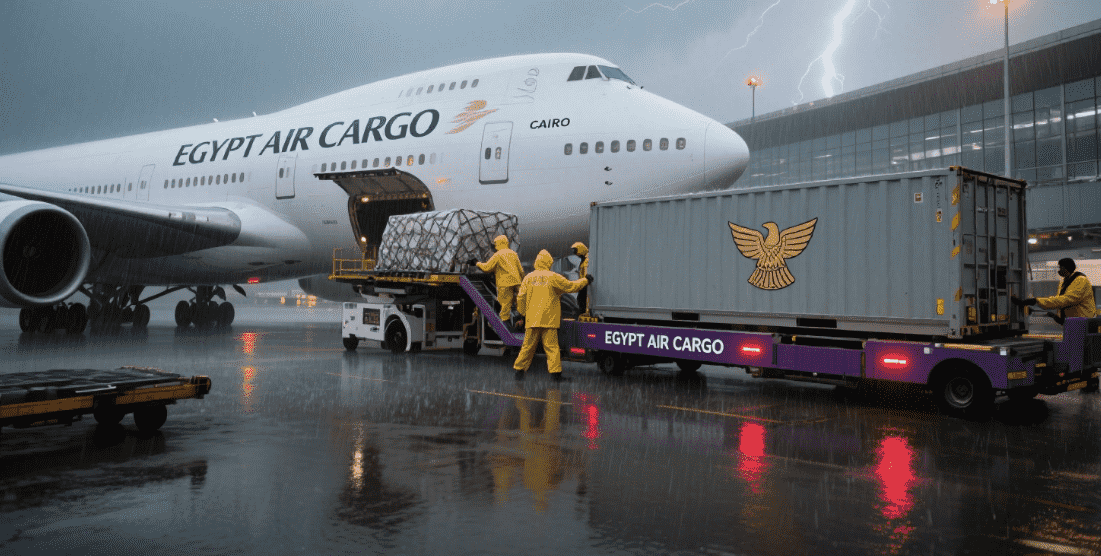
4. The Role of a Cargo Agent in Mitigating Risks
Navigating international shipping involves inherent risks, from geopolitical tensions to unforeseen delays. A competent cargo agent acts as a strategic partner by:
- Conducting Due Diligence: Verifying carrier reliability and insurance coverage.
- Monitoring Compliance: Ensuring adherence to Egypt’s Standardization and Quality Control Authority (ESQA) regulations.
- Providing Visibility: Utilizing real-time tracking tools to update clients on shipment status.
- Resolving Disputes: Mediating issues like misdeclared cargo or port strikes.
Consider a scenario where a shipment of electronics is held at Suez Port due to incomplete documentation. An experienced cargo agent would promptly liaise with customs brokers to rectify paperwork, avoiding costly demurrage charges. Such proactive intervention underscores the value of integrating a logistics solutions provider into your supply chain.
5. Trends Shaping the China-Egypt Shipping Corridor
The logistics landscape is evolving rapidly, driven by technological advancements and shifting trade policies:
- Digitalization: Blockchain-enabled platforms enhance transparency in cargo tracking and payment processing.
- Sustainability: Carriers are investing in eco-friendly vessels to comply with IMO 2020 sulfur emission caps, potentially influencing freight service pricing.
- Infrastructure Development: Egypt’s New Suez Canal Project and Chinese-funded industrial zones (e.g., the TEDA Economic Zone) are boosting bilateral trade volume, creating opportunities for scalable logistics solutions.
Businesses must stay abreast of these trends to optimize their shipping strategies. For instance, adopting predictive analytics can help anticipate capacity crunches during peak seasons, enabling提前 booking of freight service slots.
6. Why Partner with Winsail Logistics for Your China-Egypt Shipments?
At Winsail Logistics, we specialize in crafting bespoke logistics solutions that align with your business objectives. Our expertise spans:
- Comprehensive Freight Services: Sea, air, and multimodal transport tailored to your cargo type and timeline.
- End-to-End Visibility: A proprietary digital platform offering real-time updates from origin to destination.
- Regulatory Mastery: In-house customs specialists fluent in Egyptian and Chinese trade compliance.
- Cost Optimization: Dynamic rate procurement to secure the most competitive shipping costs without compromising service quality.
Whether you’re a startup exporting handicrafts or a multinational sourcing automotive parts, our team is equipped to handle shipments of any scale or complexity. Visit Winsail Logistics to explore how we can transform your supply chain.
Conclusion: Navigating the Future of China-Egypt Trade
The China-Egypt shipping corridor presents immense potential for businesses willing to invest in robust logistics solutions. By understanding the nuances of freight service pricing, leveraging the expertise of a cargo agent, and embracing emerging trends, companies can achieve seamless cross-border trade. As globalization continues to redefine markets, partnerships with agile logistics providers will be instrumental in unlocking growth opportunities.
Ready to streamline your shipping operations? Contact Winsail Logistics today to request a customized quote and embark on a journey of efficiency, reliability, and cost savings.


